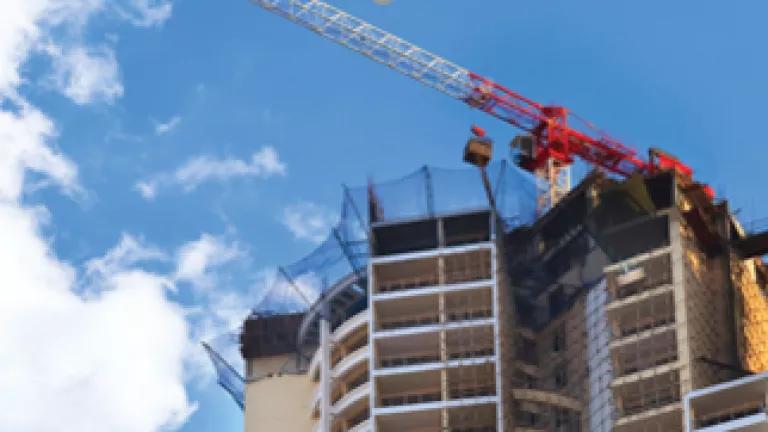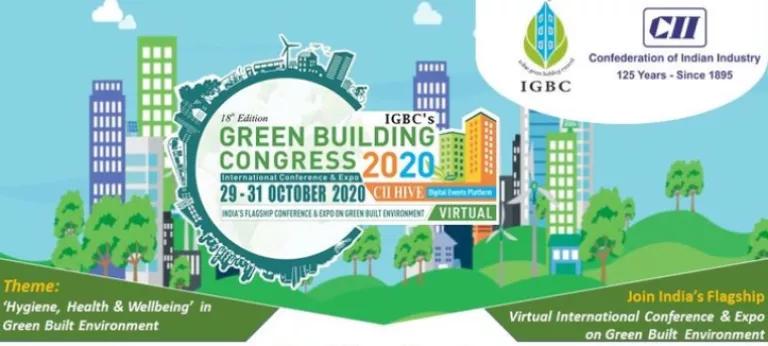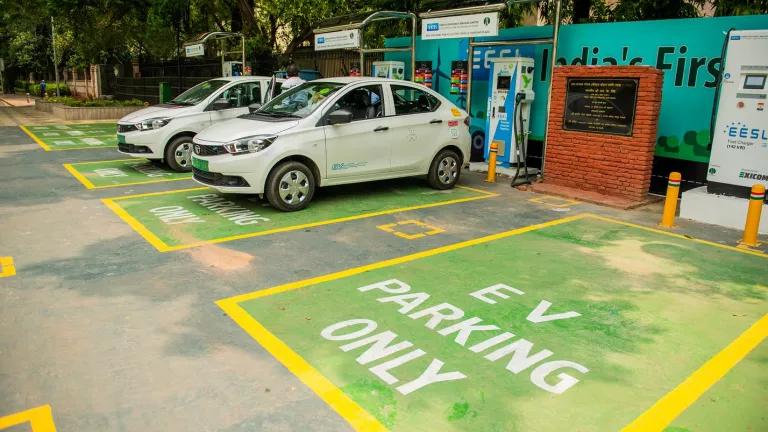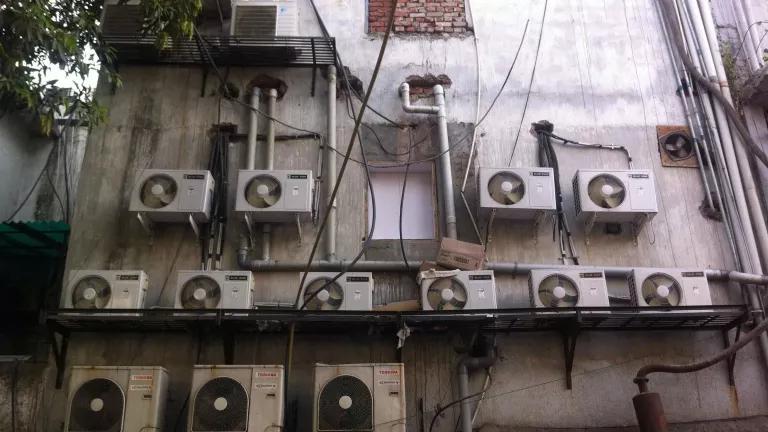Four States to Watch as the Green Building Movement Scales
Find out more about the upcoming Green Building Congress and advancements on building efficiency in India.

States_Leading_Implementation_Telangana_and_Andhra_Pradesh
Co-authored with Marie McNamara
India’s flagship event on green buildings, the Green Buildings Congress is coming up this weekend. Held virtually this year, the Green Building Congress brings together business leaders, elected officials, and thought leaders to advance India’s green building movement. “Hygiene, Health, and Well Being in the Built Environment” is the theme of this year’s congress.
Building Efficiently in India
Residential and commercial buildings in India account for nearly 30% of total electricity consumption, and expected to increase to 48% by 2042. New commercial floor space is estimated to rise at an annual rate of up to 6% in India over the next two decades adding 1-billion square meters of new commercial floor space by 2030. The growing real estate sector is a vital opportunity to scale energy efficient buildings in India to rebuild a stronger India as part of the COVID-19 economic recovery.
Energy efficiency offers significant benefits to reduce energy bills, create jobs, and improve air quality while curbing climate change. Building energy codes are effective tools for ensuring energy efficiency in the construction and operation of buildings that also enhance worker comfort. India’s Bureau of Energy Efficiency (BEE) developed the Energy Conservation Building Code (ECBC) for commercial buildings in 2007 and amended it later in 2017.
Energy performance standards can yield a 30% to 40% reduction in energy use and the actualized energy savings from ECBC compliant buildings is very compelling. If states across India adopted ECBC cumulative savings by 2030 could reach as high as 1,254 terawatts of saved electricity—enough to power 130 million Indian homes annually until 2030, based on current consumption rates for households with electricity. For energy savings to be actualized, broader state ECBC notification is needed.
States Leading Implementation: Telangana and Andhra Pradesh
Telangana and Andhra Pradesh are leaders, spearheading efforts to notify and implement the ECBC. Both Telangana and Andhra Pradesh focus on strengthening technical capacity, empaneling third party assessors and creating a two-tiered approach (design and construction phase) to code compliance. In a large-scale capacity building exercise, supported by BEE and United Nations Development Program (UNDP), more than 700 architects, engineers, and experts were training on ECBC in both Telangana and Andhra Pradesh.
Telangana and Andhra Pradesh have incorporated ECBC into their city-wide online building compliance systems. Telangana’s first building code compliance system went online in Hyderabad in December 2017 and was followed closely by Andhra Pradesh in early 2018. Today more than 250 buildings in the states are compliant with ECBC at the design stage.
The progress made in Telangana and Andhra Pradesh are examples to scale up state-wide ECBC notification across Indian states. There are now lessons from implementation that help states across India streamline the development of ECBC compliance processes.
While 15 Indian states have notified the code, the key states of Gujarat and Maharashtra have yet to notify. In addition, much more progress on implementation and compliance, as demonstrated by Telangana and Andhra Pradesh, are needed across India.
States to Watch: Gujarat and Maharashtra
With massive development and prominent real estate developers, Gujarat and Maharashtra are states to watch in the race for more energy efficient buildings in India. Both states are making progress to notify the code.
Gujarat is witnessing a growth in its commercial buildings and associated energy consumption. The Gujrat Energy Development Agency (GEDA), the nodal agency for ECBC, is working with the state Urban Development Department and Climate Change Department to incorporate ECBC into the broader building compliance process. Real estate developers are engaged in the process with capacity building as a priority among energy efficiency experts. Notification of the code is eminent.
With the megacity of Mumbai, Maharashtra is the largest state economy in India. Given its rapid urbanization, Maharashtra has taken initial steps to draft state specific ECBC roles and completed demonstration projects to showcase the actual energy savings of ECBC compliant buildings. Maharashtra is working to form a technical committee with officials from the urban development and housing departments to fast track notification.
While state agencies drive the notification of ECBC, the private sector is essential to execute and implement energy efficiency standards. Gatherings, such as the Green Building Congress, bring together a range of stakeholders to build capacity and garner support for energy efficiency initiatives. This flagship event offers public and private professionals an opportunity to work in tandem to drive the green building movement forward and promote the adoption of energy efficiency technologies.

Green Building Congress 2020
Prima Madan is an energy efficiency expert working with NRDC as a consultant based in New Delhi.
Marie McNamara is a Duke Standback Fellow working with NRDC's India team.



